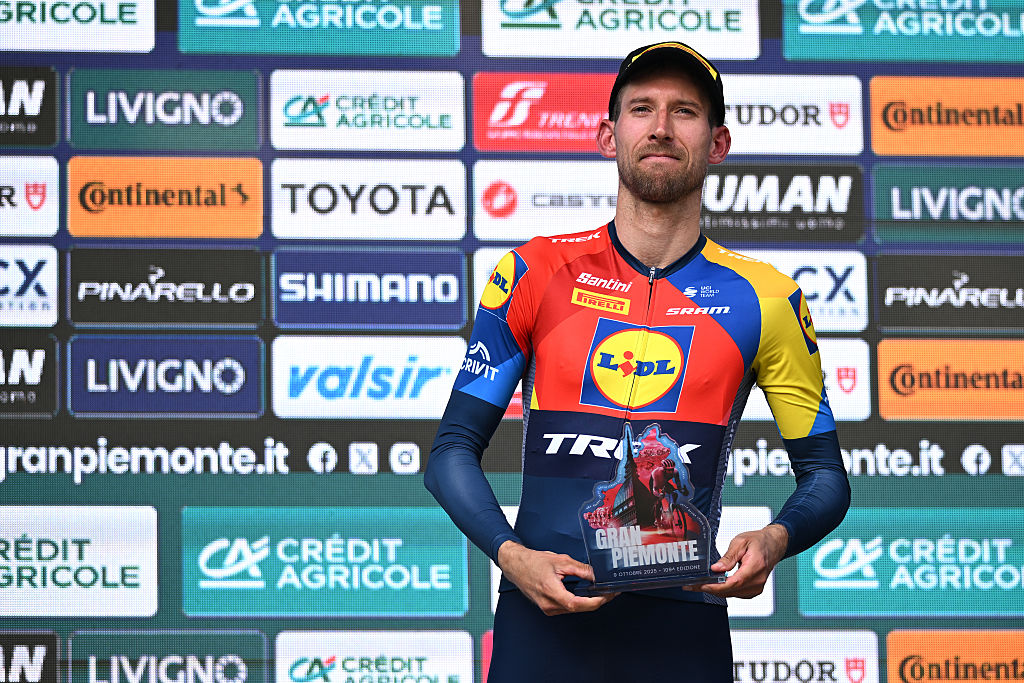UCI investigating possible doping infraction
By Shane Stokes, with additional reporting from Jeff Jones The UCI confirmed today that a sample...
The latest race content, interviews, features, reviews and expert buying guides, direct to your inbox!
You are now subscribed
Your newsletter sign-up was successful
By Shane Stokes, with additional reporting from Jeff Jones
The UCI confirmed today that a sample taken at the end of the fifth stage of the Tour de France showed traces of the restricted substance norpseudoephedrine (also known as cathine). The anti-doping commission is currently investigating the matter, although a spokesman stressed today that there is a "strong" chance that it will not be considered a bona fide doping offence.
The sample in question was taken on Wednesday July 6, when a number of riders were tested at the finish of stage five into Montargis. Stage winner Robbie McEwen (Davitamon.Lotto) and race leader Lance Armstrong (Discovery Channel) would have been amongst those required to provide samples, but as such tests commonly include random selections, it is equally possible that another rider was concerned.
Following the usual protocol in such case, the UCI today declined to name the rider in question prior to the conclusion of the commission's investigation.
"Right now, the case is being studied by the anti-doping commission of the UCI," confirmed the spokesman to Cyclingnews this afternoon. "They will determine if there is a case to answer or not, as traces of this product, norpseudoephedrine, can come about because of the use of another legal product, pseudoephedrine. It is too early to say what the commission will rule. But it is very possible that they will decide that there is no doping case at all."
In terms of the timing of the positive test, today's confirmation appears to contradict a press release issued by the UCI on July 14. That statement read: "As in other Tours de France, the UCI Anti-doping Commission gives information on the progressive developments of anti-doping controls effectuated during the race.
"All urine and blood samples taken until and on July 9, 2005 have been analysed by the Châtenay-Malabry laboratory. No infringement to the UCI Anti-doping Regulations, neither on the 2005 prohibited list, have been noted by the UCI Anti-doping Commission." The fifth stage took place on July 6.
The latest race content, interviews, features, reviews and expert buying guides, direct to your inbox!
Norpseudoephedrine is closely related to pseudoephedrine, a stimulant that was formerly restricted but is now permitted by the UCI and WADA. Pseudoephedrine is found in a number of medications such as cold remedies. According to studies [Tseng et al (Forensic Sci Int. 2005 May 7), Delbeke et al (Biopharm Drug Dispos. 1991 Jan-Feb;12(1):37-48)], pseudoephedrine can be converted to norpseudoephedrine in the body at a rate of between 1 and 7 percent. The legal limit for norpseudoephedrine in a urine sample is 5 mcg/mL, which means that a positive test via this sort of conversion is an outside possibility.
Two riders have tested above this level in the past 12 months. Phil Zajicek was disqualified from his win in last year's Tour de Qinghai Lake when he returned a sample of 6 mcg/mL of norpseudoephedrine on July 22, 2004. He was given a warning by the United States Anti-Doping Agency (USADA), lost his race win and paid a fine of 666 Swiss francs. He claimed that he had taken pseudoephedrine in a cold medication during the race, and that norpseudoephedrine was also quite common in tea and food from Northern China.
More recently, Shimano memory Corp rider Stefan Schumacher returned a non-negative "A" sample for the same substance. The German, who was leading the UCI Europe Tour points classification after winning the Ster Elektrotoer plus three stages and the overall classification of the Rheinland-Pfalz Rundfahrt, was also above the threshold. He too has pleaded his innocence, saying that his mother, who is a doctor, was not aware that that substance was restricted and had prescribed it to him in an anti-asthma medication. As yet, no judgment has been made on his case.
Frederic Donze of the World Anti-Doping Agency told Cyclingnews that WADA cannot comment at the moment. "We don't have full details of the case as the UCI are dealing with it. We were not involved in the test itself, as we only do out-of-competition testing to complement the other (race) testing which is in place."
